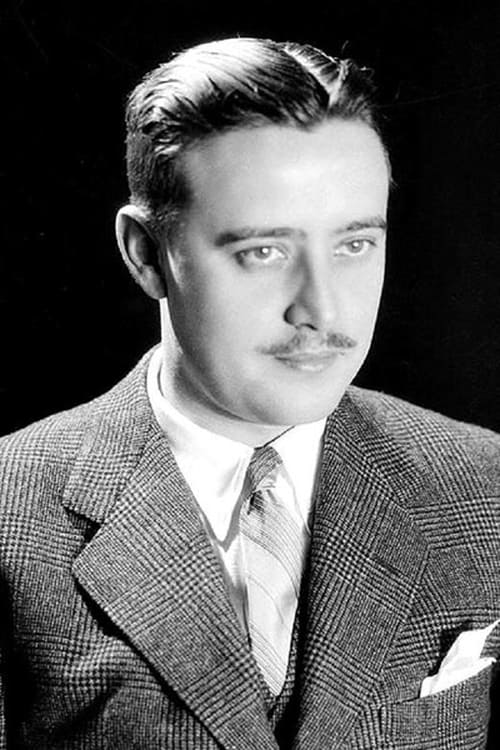
Edgar Neville
Nascimento : 1899-12-28, Madrid, Spain
Morte : 1967-04-23
História
Edgar Neville Romrée, Count of Berlanga de Duero (1899-1967) was a Spanish diplomat, playwright, and film director. He is considered one of the best directors of post-war Spain. Neville's life could be regarded as eventful. After a short participation in the Rif War as a hussar, Neville entered the artistic world, making friends with figures such as José López Rubio, Luis Buñuel, Federico García Lorca, Manuel de Falla, and Salvador Dalí. At the same time, in 1922 he became a diplomat, thanks to which he travelled the world until he settled in Los Angeles. There he met Charles Chaplin, who introduced him to the industry as a writer. In the 1930s, he returned to Spain and became romantically involved with Conchita Montes, with whom he would make most of his films. However, the Civil War broke out and Neville served the Republic as a diplomat in London while also working as a spy for the rebel side. Once discovered, he fled until he ended up in the rebel zone, where he carried out propaganda services. Once the war was over, and after a period in Italy, he settled in Marbella, recording excellent films and plays in all genres, the most outstanding examples being Life on a Thread (1945), The Tower of the Seven Hunchbacks (1944), The Crime of Bordadores' Street (1946), the acclaimed documentary Flamenco (1952), and the successful play The Dance (1952), then made into a film. Neville's talent has often gone unrecognised both because of his alleged political views and the fact that much of his oeuvre has been considered lost for decades. However, thanks to the efforts of Filmoteca Española, it has been possible to recover many of his films and discover the originality behind this interesting figure.

Writer

Novel
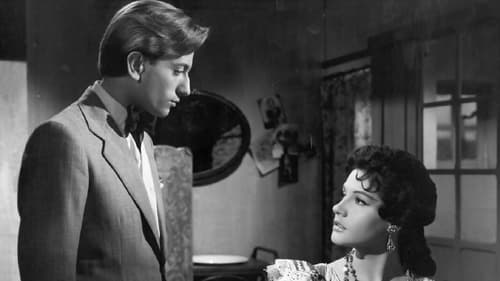
Writer
Life events around a city street and its residents are told along the years while time goes by, wars break out and end and life evolves.

Director
Life events around a city street and its residents are told along the years while time goes by, wars break out and end and life evolves.

Writer
Pedro and Julian, two friends entomologists are in love the same woman, Adela, who decides to marry Peter. Julian attends the marriage, but acts against women as her own husband. The passion that unites the two friends, entomology, leads them to conclude a treaty. The woman, however, is not comfortable with the life she has lived and want to abandon them. Discovered that she suffers from the disease, makes men willing to please her in everything, without her knowing the reason for his change of attitude.

Director
Pedro and Julian, two friends entomologists are in love the same woman, Adela, who decides to marry Peter. Julian attends the marriage, but acts against women as her own husband. The passion that unites the two friends, entomology, leads them to conclude a treaty. The woman, however, is not comfortable with the life she has lived and want to abandon them. Discovered that she suffers from the disease, makes men willing to please her in everything, without her knowing the reason for his change of attitude.

Writer
The finding of a wallet with a lot of money is the common theme of four stories, featuring a shoeshine from Seville, a clerk from Salamanca, a bullfighter from Cuenca and a newspapers seller from Paris.

Producer
The finding of a wallet with a lot of money is the common theme of four stories, featuring a shoeshine from Seville, a clerk from Salamanca, a bullfighter from Cuenca and a newspapers seller from Paris.

Director
The finding of a wallet with a lot of money is the common theme of four stories, featuring a shoeshine from Seville, a clerk from Salamanca, a bullfighter from Cuenca and a newspapers seller from Paris.

Writer

Story
In 1914, a young woman is taken to a coastal resort by her parents to find her a suitable husband.

Screenplay
In 1914, a young woman is taken to a coastal resort by her parents to find her a suitable husband.

Producer
Title changed to "Flamenco" when it was first released in the USA in 1954, this is a program of Spanish songs and dances with the emphasis on "flamenco" or gypsy contributions. The USA version has an English narrative written by Walter Terry, the dance critic of the "New York Herald Tribune" newspaper. Heading the cast are Antonio (I), Pilar Lopez and Maria Luz, three of Spain's foremost dancers of the time, accompanied by members of the Ballet Espanol. Filmed in Cinefotocolor in which orange and blue dominated, a combination that should appeal to the fans of Auburn University athletic teams. Distributed in the USA by Martin J. Lewis.

Writer
Title changed to "Flamenco" when it was first released in the USA in 1954, this is a program of Spanish songs and dances with the emphasis on "flamenco" or gypsy contributions. The USA version has an English narrative written by Walter Terry, the dance critic of the "New York Herald Tribune" newspaper. Heading the cast are Antonio (I), Pilar Lopez and Maria Luz, three of Spain's foremost dancers of the time, accompanied by members of the Ballet Espanol. Filmed in Cinefotocolor in which orange and blue dominated, a combination that should appeal to the fans of Auburn University athletic teams. Distributed in the USA by Martin J. Lewis.

Director
Title changed to "Flamenco" when it was first released in the USA in 1954, this is a program of Spanish songs and dances with the emphasis on "flamenco" or gypsy contributions. The USA version has an English narrative written by Walter Terry, the dance critic of the "New York Herald Tribune" newspaper. Heading the cast are Antonio (I), Pilar Lopez and Maria Luz, three of Spain's foremost dancers of the time, accompanied by members of the Ballet Espanol. Filmed in Cinefotocolor in which orange and blue dominated, a combination that should appeal to the fans of Auburn University athletic teams. Distributed in the USA by Martin J. Lewis.

Writer
Divided in several episodes, this film presents different stories that share the fantasy theme.

Director
Divided in several episodes, this film presents different stories that share the fantasy theme.

Producer
Two fairy godmothers struggle to make their godchildren not fight and love each other, but a third person intervenes and worsens the situation.

Writer
Two fairy godmothers struggle to make their godchildren not fight and love each other, but a third person intervenes and worsens the situation.

Director
Two fairy godmothers struggle to make their godchildren not fight and love each other, but a third person intervenes and worsens the situation.
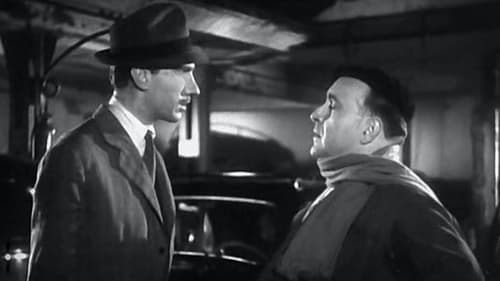
Producer
Fernando has just finished the military service. It decides to buy Bucéfalo, the horse that has been his partner for this time and returns to Madrid removing with it to the animal. But everything has changed, the city already neither is the same and even he nor finds stables nor has time to attend to it. This way the things remedy will not have any more that to look for any solution.

Writer
Fernando has just finished the military service. It decides to buy Bucéfalo, the horse that has been his partner for this time and returns to Madrid removing with it to the animal. But everything has changed, the city already neither is the same and even he nor finds stables nor has time to attend to it. This way the things remedy will not have any more that to look for any solution.

Director
Fernando has just finished the military service. It decides to buy Bucéfalo, the horse that has been his partner for this time and returns to Madrid removing with it to the animal. But everything has changed, the city already neither is the same and even he nor finds stables nor has time to attend to it. This way the things remedy will not have any more that to look for any solution.

Dialogue
Barcelona, 1860. Mr. Esteve, owner of a haberdashery and proud of his son, attends the christening of his grandson who, years later, determined to become a renowned artist, seems unwilling to continue the tradition and take over the family business. (Only badly preserved and severely mutilated copies of this film survive, just 69 out of a total of 108 minutes.)

Screenplay
Barcelona, 1860. Mr. Esteve, owner of a haberdashery and proud of his son, attends the christening of his grandson who, years later, determined to become a renowned artist, seems unwilling to continue the tradition and take over the family business. (Only badly preserved and severely mutilated copies of this film survive, just 69 out of a total of 108 minutes.)

Director
Barcelona, 1860. Mr. Esteve, owner of a haberdashery and proud of his son, attends the christening of his grandson who, years later, determined to become a renowned artist, seems unwilling to continue the tradition and take over the family business. (Only badly preserved and severely mutilated copies of this film survive, just 69 out of a total of 108 minutes.)

Producer
José de Salamanca was arguably one of the most influential figures of the Spanish 1800s. This films tells his story.

Writer
José de Salamanca was arguably one of the most influential figures of the Spanish 1800s. This films tells his story.

Director
José de Salamanca was arguably one of the most influential figures of the Spanish 1800s. This films tells his story.

Writer
A young bullfighter full of illusions triumphs in Mexico and decides to get married there and forget about his old Spanish girlfriend, who by then has just given birth to his son.

Director
A young bullfighter full of illusions triumphs in Mexico and decides to get married there and forget about his old Spanish girlfriend, who by then has just given birth to his son.

Producer
Barcelona, in the forties. Young Andrea comes to town to start college in the midst of an oppressive environment and extreme poverty. She's staying at her aunt Angustias, along with other family members. But the quarrels between them are continuous, making evident the open wounds left by the Spanish civil war.

Director
Barcelona, in the forties. Young Andrea comes to town to start college in the midst of an oppressive environment and extreme poverty. She's staying at her aunt Angustias, along with other family members. But the quarrels between them are continuous, making evident the open wounds left by the Spanish civil war.
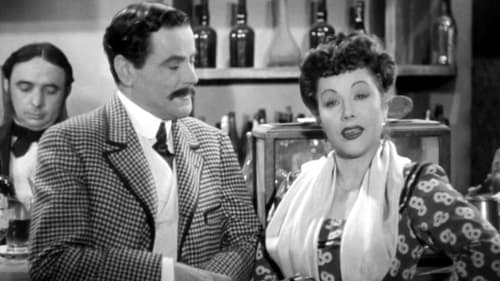
Writer
Madrid, late 19th century. A wealthy woman is found murdered at home and her maid appears as the main suspect, but her statement entangles this seemingly simple case.

Director
Madrid, late 19th century. A wealthy woman is found murdered at home and her maid appears as the main suspect, but her statement entangles this seemingly simple case.
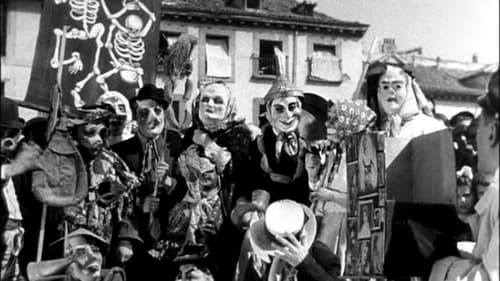
Writer
Madrid, Carnival Sunday. A night watchman finds the body of a woman, a rich and greedy moneylender who has apparently been murdered. The prime suspect is a watchmaker who owed her a lot of money.

Producer
Madrid, Carnival Sunday. A night watchman finds the body of a woman, a rich and greedy moneylender who has apparently been murdered. The prime suspect is a watchmaker who owed her a lot of money.

Director
Madrid, Carnival Sunday. A night watchman finds the body of a woman, a rich and greedy moneylender who has apparently been murdered. The prime suspect is a watchmaker who owed her a lot of money.

Producer
After burying his late husband, a young widow leaves his provincial life and heads to the city. It was a very hard stage in her life, and she had to bear it with resignation, but now she's willing to make up for lost time. On the way to the city, she meets a fortune teller who will talk to her about the decisions she made or could have made.

Writer
After burying his late husband, a young widow leaves his provincial life and heads to the city. It was a very hard stage in her life, and she had to bear it with resignation, but now she's willing to make up for lost time. On the way to the city, she meets a fortune teller who will talk to her about the decisions she made or could have made.

Director
After burying his late husband, a young widow leaves his provincial life and heads to the city. It was a very hard stage in her life, and she had to bear it with resignation, but now she's willing to make up for lost time. On the way to the city, she meets a fortune teller who will talk to her about the decisions she made or could have made.
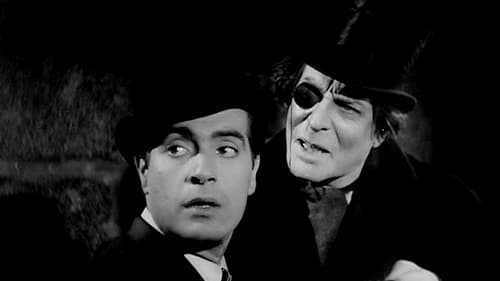
Screenplay
In Madrid, Spain, at the end of the 19th century, the young and reckless Basilio seems to be the only person who perceives the spectral presence of Professor Robinsón de Mantua, who begs him to take care of his niece Inés, because she is in grave danger.

Director
In Madrid, Spain, at the end of the 19th century, the young and reckless Basilio seems to be the only person who perceives the spectral presence of Professor Robinsón de Mantua, who begs him to take care of his niece Inés, because she is in grave danger.

Screenstory
After suffering a family tragedy, Carmen leaves Spain and emigrates to Paris, where she will make new friends among some of the most peculiar characters who inhabit the bohemian neighborhoods of the city. (Partially lost film.)

Screenplay
After suffering a family tragedy, Carmen leaves Spain and emigrates to Paris, where she will make new friends among some of the most peculiar characters who inhabit the bohemian neighborhoods of the city. (Partially lost film.)

Director
After suffering a family tragedy, Carmen leaves Spain and emigrates to Paris, where she will make new friends among some of the most peculiar characters who inhabit the bohemian neighborhoods of the city. (Partially lost film.)
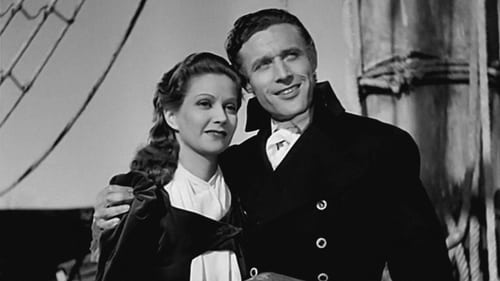
Writer
A Dutch sailing ship finds the wreckage of a Spanish mail ship, which has collided with an iceberg. Inside, the bodies of a man and a woman are found embraced.

Director
A Dutch sailing ship finds the wreckage of a Spanish mail ship, which has collided with an iceberg. Inside, the bodies of a man and a woman are found embraced.

Writer
Nadia, a young Soviet journalist who is passing through Pompeii, discovers the power that comes from the Catholic faith when the painter she loves, Paolo, and who saved her from drowning during the shipwreck of the cruise in which they met, is at the gates of death because of a serious illness whose symptoms are similar to those of leprosy.

Director
Nadia, a young Soviet journalist who is passing through Pompeii, discovers the power that comes from the Catholic faith when the painter she loves, Paolo, and who saved her from drowning during the shipwreck of the cruise in which they met, is at the gates of death because of a serious illness whose symptoms are similar to those of leprosy.

Screenstory
In Madrid, during a popular festival, Don Paco, the owner of a freak show called The Palace of Wonders, has to deal with the demands of Levinsky, a sinister character who apparently has something to hide…

Screenplay
In Madrid, during a popular festival, Don Paco, the owner of a freak show called The Palace of Wonders, has to deal with the demands of Levinsky, a sinister character who apparently has something to hide…

Director
In Madrid, during a popular festival, Don Paco, the owner of a freak show called The Palace of Wonders, has to deal with the demands of Levinsky, a sinister character who apparently has something to hide…

Writer
Film about the flamenco singer Dolores Parrales Moreno "La Parrala".

Director
Film about the flamenco singer Dolores Parrales Moreno "La Parrala".

Writer
Javier Navarro, a Falangist, is ordered to infiltrate Republican Madrid to deliver a message to a member of the Fifth Column.

Director
Javier Navarro, a Falangist, is ordered to infiltrate Republican Madrid to deliver a message to a member of the Fifth Column.

Writer
Spanish war propaganda documentary.

Director
Spanish war propaganda documentary.

Supervising Technical Director
Rogelia, the orphan of an Asturian miner who died in a work-related accident, marries Máximo, a man as robust as jealous, drunk and violent. But when her husband is jailed, the woman will take advantage to escape with the doctor of the village so as to see the world and perhaps to form a family.

Writer
War propaganda directed by Edgar Neville about the Madrid Front.

Writer
A Spanish propaganda documentary showing young men parading.

Director
A Spanish propaganda documentary showing young men parading.

Director
War propaganda directed by Edgar Neville about the Madrid Front.

Un huésped

Writer

Director

Writer
Based on the novel of Wenceslao Fernández Flórez, this comedy where two friends try to become criminals achieved certain recognition.

Director
Based on the novel of Wenceslao Fernández Flórez, this comedy where two friends try to become criminals achieved certain recognition.

Writer

Writer
This Spanish lost film was a parody of the zarzuela genre.

Director
This Spanish lost film was a parody of the zarzuela genre.

Narrador
A parody of the current affairs news format built upon autonomous pieces.

Writer
A parody of the current affairs news format built upon autonomous pieces.

Director
A parody of the current affairs news format built upon autonomous pieces.

Writer
This Spanish lost film showed various episodes where several Spanish try to achieve their dream about going to Hollywood.

Director
This Spanish lost film showed various episodes where several Spanish try to achieve their dream about going to Hollywood.

Stage Director
An inveterate sailor renounces love because of his passion for the sea. It is the Spanish-language version of Way for a Sailor (Wood, 1930).

Dialogue
An inveterate sailor renounces love because of his passion for the sea. It is the Spanish-language version of Way for a Sailor (Wood, 1930).

Stage Director
The Spanish-language version of 1930's The Big House.

Dialogue
The Spanish-language version of 1930's The Big House.














